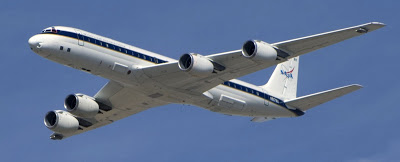Abuja, Sept.13, 2023: Mr Joep Ellers, Airbus Airline Marketing Director for Africa, had said that African carriers will need at least 160 new passenger and freighter aircraft to meet the rising demand by 2042.
Ellers made the assertion on Tuesday in Abuja while addressing newsmen ahead of Aviation Africa Summit and Exhibition scheduled to hold on Sept. 13 to Sept.14. in Abuja.
According to him, the Airbus Global Market has predicted that passenger traffic to, from and within Africa will increase by 4.1 per cent yearly over the next twenty years with demand driven by urbanisation, trade and tourism.
He added that the percentage of passenger traffic could rise even faster if the Single Africa Air Transport Market (SAATM) could be fully implemented across the continent.
“Airbus’s presence in Africa is as diverse as the continent itself. Since the mid-1970s our range of innovative commercial airliners have operated on routes to, from and within the
continent.
“Africa was the first export market for Airbus’s very first commercial jetliner, the A300. It was also one of the first export markets for the A320.
” The world’s first fly-by-wire controlled commercial airliner, which set the standard for fully digital airliners,” he said
He said Airbus since then had become synonymous with air travel to, from and within Africa with more than 270 Airbus aircraft currently being flown by nearly 40 African operators across the
continent.
According to him, customers in the region presently account for 295 orders while African carriers are increasingly aware of the operational and economic benefits of acquiring new and modern aircraft.
“In fact, today airlines on the continent operate some of the most efficient and technologically advanced aircraft such as the A350XWB, A330neo, A320neo and the A220.
“Africa’s Airbus operators include customers such as Ethiopian Airlines, Rwandair, Air Senegal, South African Airways, Air Côte d’Ivoire, Egypt Air and more.
“In addition, a number of international carriers operate Airbus long-haul products on their routes to African destinations,” he said.
The director said made in Africa Airbus’ inclusive approach to commercial and industrial opportunities, was founded on collaboration and the establishment of mutually-beneficial long-term public and private sector partnerships.
According to him, Airbus supply chain in Africa represents more than 100 direct or indirect suppliers as at today , with most of them based in Morocco, Tunisia and South Africa.
“Products and services sourced from Africa include design engineering, manufacturing of aero-structures, control surface components, composites and metal detail parts, door parts, fuselage and tail-cone components, avionics racks, electrical wiring harnesses and actuators.
” Others are cabin furnishings, fuselage and cockpit linings, cargo locking mechanisms,galleys, washrooms, seat frames, satellite communications equipment, floor panels and even cockpit windscreen wiper components.
“Similarly, Airbus’ ethos on research and knowledge is based on a shared quest for innovative solutions to underpin economic development and the improvement of lives for all,” he said.
He said Airbus had put in place relationships with prominent universities and programmes to support local startups over the past decade.
According to him, Airbus’ ambition is to cast the net wide to include centres of learning excellence and innovative thinking across Africa.
He added that the company was also providing training and assistance, Airbus Helicopters Southern Africa operates H125 FNPT simulator in Johannesburg.




